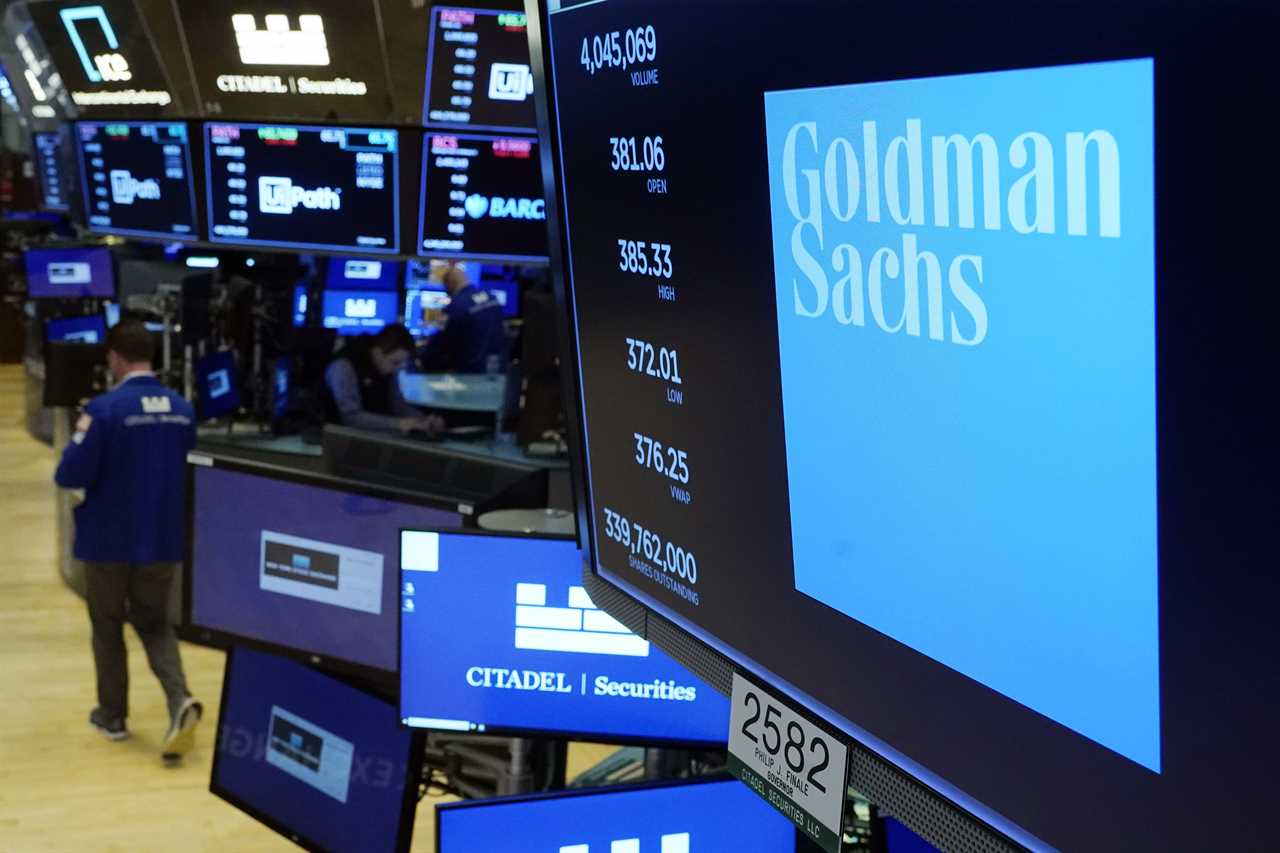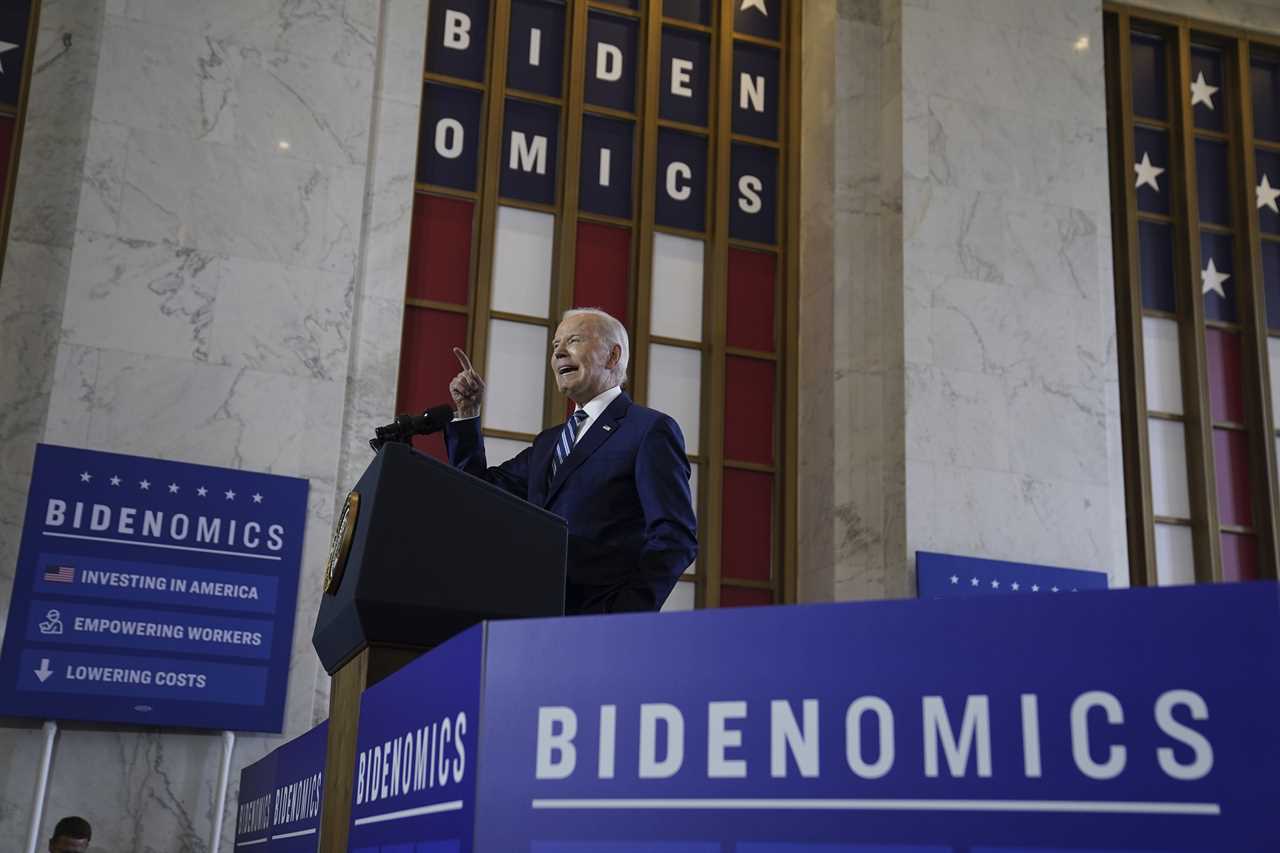
President Joe Biden is telling the American people that the economy is in better shape than they think. As inflation starts to fade, some on Wall Street are starting to believe it.
Leading economists at big banks like Goldman Sachs and JPMorgan Chase have lowered their odds of an imminent recession, pointing to a resilient labor market and steady household finances as signs that the U.S. can weather the storm as the Federal Reserve continues to drive up borrowing costs.
“The most anticipated recession in modern history may not come,” Jamie Cox, a managing partner at the advisory firm Harris Financial Group, said in an interview.
The job market has started to soften without pushing up unemployment, Goldman’s chief U.S. economist David Mericle said on the bank’s podcast. There’s also growing confidence that the pressure banks felt following the failures of several regional lenders won’t cause a recessionary shock.
“I feel better about the prospects for achieving a soft landing based on what we've seen so far,” Mericle said.
That bodes well for Biden as his administration undertakes a nationwide messaging push to sell the public on his economic track record.
“I continue to believe that there is a path to reducing inflation while maintaining a healthy labor market," Treasury Secretary Janet Yellen said in prepared remarks delivered in New Orleans last week. "Without downplaying the significant risks ahead, the evidence that we’ve seen so far suggests that we are on that path.”
Yellen added that business executives she’s met with “have increasingly voiced confidence in our economy.”
Still, despite low unemployment, wage growth and a relatively robust stock market, Americans have given the president dismal marks on economic policy. An Associated Press-NORC Center for Public Affairs Research poll released last week found that barely a third of respondents approve of Biden’s leadership on economic matters.
That reflects lingering frustration with elevated consumer prices that have eaten away at paychecks for more than a year, particularly in the service sector, which hasn’t been as sensitive to Fed rate hikes that are intended to bring down prices. The personal consumption index, the central bank’s preferred inflation gauge, on Friday showed that prices climbed in May by 3.8 percent — the slowest annual rate since April 2021 but still well above the Fed's 2 percent target.
Fed Chair Jerome Powell said he wouldn’t take two additional rate hikes at the central bank’s next two meetings “off the table.” There was little in the latest inflation print that would suggest he’ll change his mind. Core PCE — which measures inflation without food and energy prices — barely budged in May.

Yet there are tangible signs that Wall Street’s confidence in the economy is starting to improve.
The S&P 500 has climbed by more than 16 percent since the start of the year even as lenders warn of tighter credit conditions. Consumer confidence has started to improve and spending on new construction has risen. There are even signs of recovery in homebuilding, which could relieve pressure on rents and cool inflation.
What’s more, many economists expect the Labor Department’s jobs report on Friday to show that the unemployment rate fell slightly in June to 3.6 percent with payrolls increasing by about 225,000 — a solid number but fewer than in most recent months.
“Even if the unemployment rate went up a few tenths of a percent from here, the labor market would still be in very good shape relative to history,” Scott Wren, a senior global market strategist at the Wells Fargo Investment Institute, wrote in a research note. “U.S. consumers with money in their pockets tend to go out and spend it.”
While yields on 10-year and 2-year Treasury yields remain inverted, which typically signals that a recession is coming, Bank of America rates strategist Meghan Swiber said that might actually reflect the market’s anticipation of inflation falling — rather than an economic downturn.
“The market is of this view that the Fed will be cutting rates, not so much because we're in a recession, but because inflation is normalizing,” she said.
----------------------------------------
By: Sam Sutton
Title: Americans haven't bought Biden's economic message. Wall Street might.
Sourced From: www.politico.com/news/2023/07/05/wall-street-biden-economy-00104480
Published Date: Wed, 05 Jul 2023 03:30:00 EST






